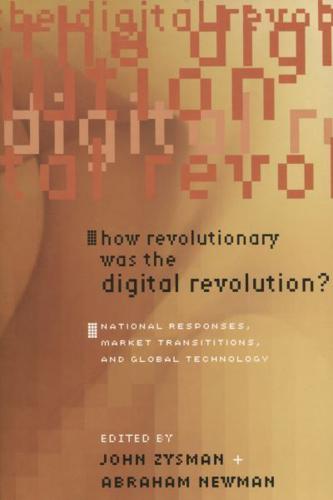Publisher's Synopsis
How do high wage countries stay rich in a global digital economy? How Revolutionary was the Digital Revolution constructs a framework for analyzing the international digital era: one that examines the ability of political actors to innovate and experiment in spite of, or perhaps because of, the constraints posed by digital technology.
In order to assess the revolutionary nature of the digital era, this book takes four overlapping approaches. First, it examines the reaction of nations, specifically Finland, Japan, and emerging markets, to the dual challenges of globalization and technological change. This section identifies both successful and failed national experiments intended to deal with these dual pressures. Second, it assesses corporate attempts to leverage digital technology to reorganize work. A broad range of issues including off-shoring, open source production systems, and knowledge management are addressed. Third, devoting detailed analysis to the case of mobile telephones, the book offers insights into the political economy of market evolution in the digital era. The final section considers the political ramifications of information technology for critical societal debates ranging from privacy to intellectual property.
The contributors to the book map out how the digital revolution shakes up politics, creating new economic and political winners and losers. In order to do so, they connect theories of political economy to the implications of digital technology for international as well as national markets.










